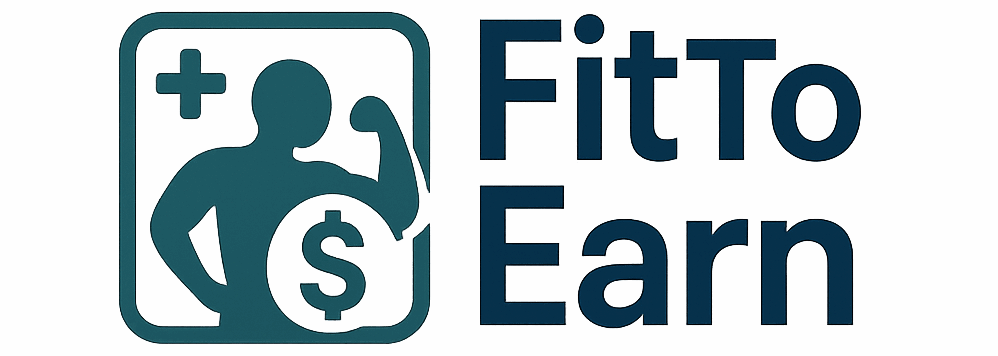Meta Title: The New Rules of Finance: Build Smart Money Habits for 2025 and Beyond
Meta Description: Learn modern finance strategies that go beyond budgeting apps—insights, tools, and habits to build wealth and make smarter money decisions.

Introduction: Why Finance Needs a Modern Refresh
Finance used to mean spreadsheets, jargon, and intimidating suits. But in 2025, finance has a new face—accessible, tech-powered, and deeply personal.
Still, with so much noise from financial influencers, apps, and market chaos, many of us feel more overwhelmed than empowered. If you’ve ever felt like your money was running you—not the other way around—this post is for you.
We’re breaking down modern finance with real-world insight, actionable strategies, and a few personal truths. Whether you’re trying to pay off debt, invest smarter, or simply understand where your paycheck is going, this is your financial reality check.
Old-School vs. Modern Finance: What’s Changed?
Let’s start with a comparison of traditional financial thinking and today’s evolving landscape:
| Aspect | Old-School Finance | Modern Finance |
|---|---|---|
| Budgeting | Monthly spreadsheets | Automated apps like YNAB, Mint, or Monarch |
| Investing | Mutual funds, long-term only | ETFs, robo-advisors, DIY investing, crypto |
| Credit | Avoid all debt | Strategic use of credit and leveraging points |
| Financial Advice | Bankers, brokers | Fee-only advisors, YouTube creators, fintech |
| Money Mindset | Frugality and saving | Balance between saving, spending, and experiences |
Key Insights: Rethinking Finance for Real Life
📈 1. Financial Literacy Is the New Self-Care
If you’re not actively managing your money, someone else is doing it for you (and charging you for it). Yet, over 60% of people don’t feel financially confident, according to a recent CNBC survey.
Boost your literacy with these free, trusted resources:
- Investopedia: Great for beginners
- Bogleheads Forum: Advice from index fund champions
- The Psychology of Money: A mindset-shifting book by Morgan Housel
Personal takeaway: I used to think reading finance books was boring—until I realized understanding compound interest gave me more peace of mind than meditation ever did.
🌎 2. The Rise of Financial Independence (Not Just Retirement)
The FIRE movement (Financial Independence, Retire Early) has evolved. It’s no longer just about quitting work at 35—it’s about building flexibility and options.
Core principles of modern FIRE:
- Live below your means, but enjoy life now
- Invest in low-fee index funds (like VTI, VOO)
- Track your FI number (the amount needed to live off investments)
- Value time more than status
Apps like Empower or Personal Capital can help visualize your path to independence.
🚀 3. Tech is Transforming Personal Finance
From high-yield savings accounts to investing on autopilot, fintech is making finance more democratic.
Notable trends:
- Robo-advisors like Betterment and Wealthfront
- Fractional investing via Robinhood or Public
- Crypto wallets for decentralized assets (but approach cautiously!)
- Buy Now, Pay Later (BNPL) tools like Klarna or Afterpay—convenient, but risk impulse debt
⚠️ Pro tip: Don’t confuse access with understanding. Just because you can buy a fraction of a stock doesn’t mean you should. Research first.
💵 4. Inflation, Interest Rates & Your Financial Strategy
In a high-inflation world, letting money sit in a 0.01% savings account is a losing game.
Smart moves:
- Use high-yield savings accounts like Ally or Marcus by Goldman Sachs
- Keep an emergency fund of 3–6 months in liquid cash
- Invest consistently, even during downturns
Inflation-proof assets:
- Stocks (long-term growth)
- Real estate (rents typically rise with inflation)
- Treasury Inflation-Protected Securities (TIPS)
🏡 5. Rethink Debt: Use It, Don’t Fear It
Not all debt is bad. What matters is the cost of debt versus the return on your investment.
| Type of Debt | Generally Good | Generally Risky |
| Mortgage | Yes (if affordable) | No (if house-poor) |
| Student Loans | Yes (if ROI is high) | No (for low-ROI degrees) |
| Business Loans | Yes (with clear payback plan) | No (without proven revenue) |
| Credit Card Debt | Rarely | Yes (high interest) |
Tips to manage debt wisely:
- Use the avalanche method to pay down high-interest balances first
- Consider balance transfer cards or consolidation loans
- Check your credit score regularly via Credit Karma
Real-Life Finance: What the Gurus Don’t Always Say
🧳 1. Budgets Aren’t Boring—They’re Freedom Plans
A budget doesn’t limit you; it liberates you. Try:
- Zero-based budgeting (assign every dollar a job)
- Anti-budgeting (set a savings goal, then spend the rest freely)
📊 2. Investing Isn’t Just for the Wealthy
With $5 and a smartphone, anyone can start. What matters more than amount is time in the market. Avoid:
- Day trading unless you really know what you’re doing
- Following hype (remember GameStop?)
🌟 3. Your Money Story Shapes Your Habits
Financial trauma, upbringing, and beliefs all affect how we manage money.
- Did you grow up hearing “money doesn’t grow on trees”?
- Do you overspend to feel in control?
Addressing your emotional relationship with money may be the most powerful financial move you can make.
Conclusion: Finance Isn’t About Perfection—It’s About Progress
Modern finance is messy, personal, and constantly evolving. But you don’t need to master every tool or read every article. You just need to start—today.
Set up a budget. Open that investment account. Schedule a money date with yourself. Progress, not perfection.
Call to Action: Ready to Own Your Financial Story?
- Drop a comment: What’s one financial habit you’re working on?
- Download our free money tracker to start budgeting with clarity
- Explore related content: How to Build Wealth from Scratch
- Subscribe to our newsletter for weekly money tips that actually make sense
Because the future of finance isn’t about spreadsheets—it’s about freedom.




